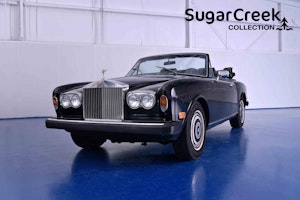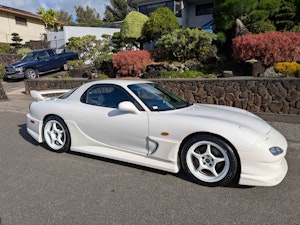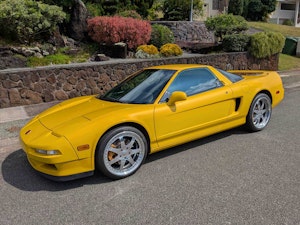Media | Articles
Ford Nixes Three-Row EV, Delays Mid-Size EV Pickup, Plans EV Work Van
Ford is making some big, expensive changes to its plans for building electric vehicles. Its three-row, electric SUV is canceled, its mid-size electric pickup is delayed until 2027, and its next generation of electric vehicles will begin with a commercial van.
The strategic shift includes a reduction in Ford’s mix of annual capital expenditures toward pure electric vehicles from about 40% to 30%, increases focus on hybrid vehicles in the short term, and renews efforts to lower costs of future EV offerings. The shift comes after the company reported at the end of July that it did not meet its targets for the second quarter of 2024.
Ford is under increasing pressure from investors, particularly when it comes to warranty costs and to electric vehicles. In its Q2 report, Ford noted that the Model e, the business vertical responsible for EVs, lost more cash than expected: $4.7 billion rather than the projected $4.5 billion.
Marketplace
Buy and sell classics with confidence
Stock prices had reached a high-water mark for 2024 after Ford announced earlier in July that it would spend $3B to build more Super Duty trucks. But on Wednesday, July 24, when the Q2 results were announced, share values plummeted, falling to $11.16 from $13.67 on July 26, and slipping again to $9.77 by the following Wednesday. Ford’s stock prices hadn’t been so low since November of 2023.

Ford had planned to build an electric three-row SUV—likely a competitor to the Telluride-size Kia EV9, made in Georgia—at Oakville Assembly Complex in Ontario, Canada, where the Super Duty trucks are built. However, as Jim Farley said, Ford couldn’t meet demand for the Super Duty, “even with our Kentucky Truck Plant and Ohio Assembly Plant running flat out.” So, Ford allocated $2.3 billion to install assembly and stamping operations at Oakville. So long, electric three-row.
Today’s announcement indicates that, despite the positive news for Super Duty production, the cancelation of the EV that was to be built at Oakville comes at huge cost:
As a result of this decision, the company will take a special non-cash charge of about $400 million for the write-down of certain product-specific manufacturing assets for the previously planned all-electric three-row SUVs, which Ford will no longer produce. These actions may also result in additional expenses and cash expenditures of up to $1.5 billion and the company will reflect those in the quarter in which they are incurred, as a special item.
Ford is still planning to build three-row SUVs, but they won’t be pure electric; they’ll be hybrid. Also under the banner of “Broader Electrified Options,” Ford says that it will increase the variety of propulsion types for upcoming Super Duty trucks, F-150s, and Mavericks in an effort to “future-proof” its lineup.
The “next generation of electric vehicles” will be led not by an SUV but by a commercial van assembled at Ohio Assembly and debuting in 2026. The change makes sense: Unlike Model e, Ford Pro, the commercial arm of the business, is profitable. It’s likely better able to absorb the costs of this new vehicle.
You’d think that Ford’s delay of new EVs, and a refocus on hybrids, would be welcome news to the market, and Reuters reports that Ford shares rose 1.4% in premarket trading. However, there’s a lot of ground to recover.
Ford Model e is pinning much of its hopes on a “skunkworks” team in California, led by several ex-Tesla executives, news of which began to circulate the beginning of this year. The team was founded in 2022 and tasked with developing affordable electric vehicles. The now-canceled three-row SUV was to represent the second generation of Ford EVs. The California team is working on the third.
The first fruits of this West Coast team will be a mid-sized electric pickup launching in 2027. That’s not to be confused with the successor to the F-150 Lightning, a “next generation electric truck” codenamed Project T3, which is due in the second half of 2027 and will be assembled in Tennessee.

When you hear of new hybrid SUVs or Super Duty trucks from Ford, remember that those evolutions, which seem like such natural progressions, are the results of significant, costly changes to Ford’s original plan.














That graphic from the 2023 press release was more informational than I thought it’d be.
Never knew Ford Canada had a brand named Monarch!
In other words, Ford leadership — with all their fancy MBAs from Ivy League schools that *supposedly* (cough) produce highly educated people — spent BILLIONS of dollars to figure out they should build what their ACTUAL customers want, instead of what idiots in D.C. hope will result in utopia… huh. They coulda asked a few of us — what term do they use on TV? — “non-college educated” folk here in flyover land and saved themselves the trouble!
I still find it hard to believe that Ford threw so much of THEIR dough into going headlong into EVs before checking to see if there was going to be any water in the pool before they jumped in. If this is the best thinking of those considered to be elites, then Harvard and others ought to consider making tuition refunds.
Amen to that. And they keep lining up at the diving board.